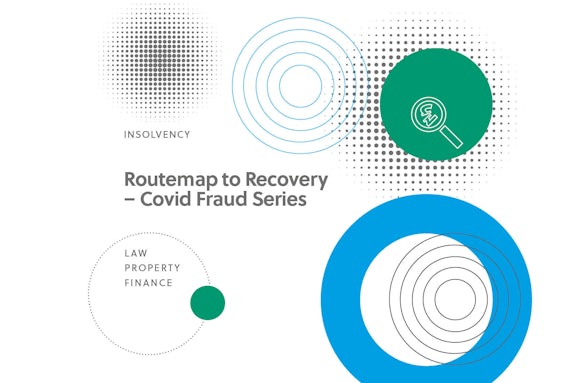In this second of our series of fraud related insights for Insolvency Practitioners, we outline what IPs need to be on the lookout for when it comes to the expanding powers to bring unfit directors and members to task and what we think the trends will be over the next few years.
The Insolvency Service has long had powers to seek disqualification of directors whose conduct in managing a company has been unfit, for example by allowing a company to continue trading while insolvent or by failing to keep proper accounting records. These powers have mostly been limited to directors of companies that have become insolvent. There has been a longstanding loophole that enabled directors to avoid scrutiny from the Insolvency Service if they had dissolved the company without it going into an insolvency process. That loophole has now been removed with the Rating (Coronavirus) and Directors Disqualification (Dissolved Companies) Act 2021 which came into force in December 2021. The new legislation also has retrospective effect enabling the Insolvency Service to investigate directors of companies dissolved prior to the legislation coming into force.
There have been proposals to extend the powers of the Insolvency Service to cover directors of dissolved companies since 2018. Directors dissolving companies to shed their liabilities or avoid the costs and implications of formal insolvency proceedings before starting up again with a new company vehicle is certainly not new. However, the scale of Bounce Back Loan fraud and many examples of companies obtaining loans and then being dissolved shortly after the money is received has seen the Government accelerate the proposals into legislation and to ensure they have retrospective effect. How these new powers play out in practice will likely be a matter of resourcing the Insolvency Service. On Bounce Back Loan fraud issues to date, the Government has indicated that it intends to prioritise funding for investigations into organised crime rather than smaller scale frauds (see the first article in our series on Government powers)
Members of LLPs
Most of the press coverage on disqualification powers has focused on directors of companies. However, the legislation also applies to members of limited liability partnerships.
Limited Liability Partnerships share some features of companies and some of partnerships. In particular, members of an LLP have limited liability unlike partners in a partnership. A decision in England in 2021 has clarified that the disqualification powers apply to all members of an LLP, not just members who sit on a management board or otherwise have a role in managing the central business of the LLP.
In Secretary of State for Business, Energy and Industrial Strategy v Geoghegan and others [2021] EWHC 672 (Ch), the disqualification of a number of members of an LLP that had traded as a PR agency was sought by the Secretary of State. The members argued that they were junior members in the LLP and played no part in the overall management of the business. The members argued that the only way in which members of an LLP could be equated to the directors of a company would be if the definition of “members” in the disqualification legislation was limited to the LLP members who were on the LLP’s management board or other governing body. The court was sympathetic to their position but took the view that the legislation covered all members of an LLP. It was not limited to members on a management board or at a level in the business to be equivalent to a director of a company. The unfit conduct complained of was also not limited to conduct in the course of managing the LLP but could cover anything done in the capacity of member of an LLP.
The court did suggest one qualification of sorts. The Secretary of State can only bring disqualification proceedings when it is in the public interest to do so. The court suggested that it may not be in the public interest to bring proceedings against junior members who are not involved in the management of the business. Nevertheless, all LLP members would be well advised to keep themselves informed about the LLPs finances and dealings regardless of their management responsibilities to ensure they keep an eye on the running of the business and are confident it is being run responsibly.
We think that there will be a number of investigations at the hands of TIS most likely with HMRC support or at least their involvement (watch out for tax investigations!) How many investigations will end up in proceedings being taken against delinquent directors will remain to be seen – see our thoughts on “Government powers” in the first article in this series. As trusted advisors, you will now be able to proactively make all of your clients aware of this risk, a good excuse to offer to provide “health check” services to any corporate or LLP!
If you want to join our Insolvency mailing list please contact us here
Should you have any questions on any of the articles in this series please contact:
Eilidh MacEwan by email: emacewan@gilsongray.co.uk or by phone: 0131 285 1809 / 07376 192 463.
Steven Jansch by email: sjansch@gilsongray.co.uk or by phone: 0131 516 5361 / 07841 920 100.
Craig Darling by email: cdarling@gilsongray.co.uk or by phone: 0141 530 2044/07841 920 467
You can visit our dedicated Insolvency page here
The information and opinions contained in this blog are for information only. They are not intended to constitute advice and should not be relied upon or considered as a replacement for advice. Before acting on any of the information contained in this blog, please seek specific advice from Gilson Gray







